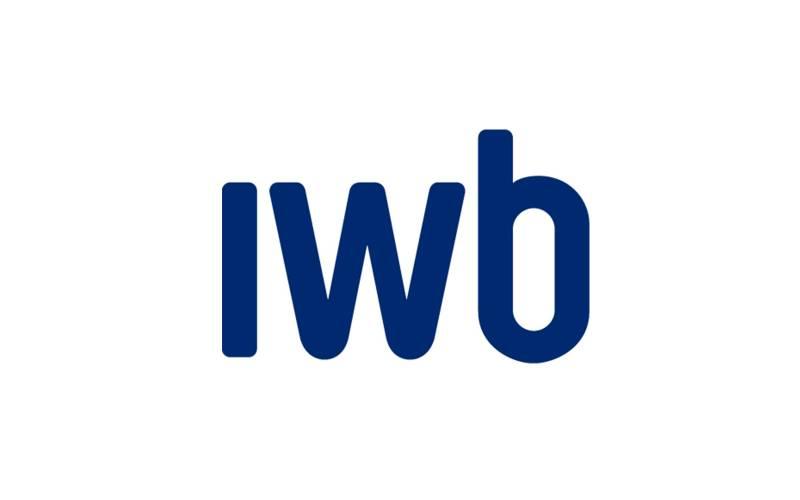Partnership with IWB 2021
The WWF and IWB are partners for renewable and efficient energy supply in the Basel region, which is also compatible with the requirements for the protection of nature and wildlife.


CLIMATE AND ENERGY
IWB and WWF work together to expand renewable and climate-friendly power and heating supply in and around Basel. They are committed to increasing power and heating efficiency and emphasise this commitment to politicians and the public. Together, the partners develop ideas for new ecological products and services. Moreover, WWF and IWB combine efforts to ensure that fish can pass through the hydropower plants of IWB, and to either maintain or achieve sustainable certification of these plants with the naturemade star quality label. This primarily concerns the plants that are fully owned by IWB, but also to other IWB shareholdings. The overall goal is to allow fish better passage and protect the waters.
Reduction of CO2 emissions
IWB has set the goal to reduce CO2 emissions from its energy sales by 67% in 2030 compared to 1990. The quantity of CO2 emissions is measured in tonnes. The scope comprises all IWB business areas, including sales of natural gas, district heating, contracting, and power.
In 2021, CO2 emissions amounted to 694,000 tonnes, approximately 44% lower than in 1990.
Note: Due to the cold weather in the heating periods 2020/2021 and 2021/2022, CO2 emissions are higher than in 2020 and thus above the target value agreed with WWF. It is evidenced by the so-called heating degree days, which were 22 percent higher in 2021 than in 2020.
Expansion of power production from photovoltaics
IWB has set the goal of increasing domestic photovoltaic power production by 16 GWh by 2022 compared to 2018. The photovoltaic power quantity is measured in GWh.
In 2021, the quantity of domestically generated photovoltaic power was 18.3 GWh, an increase of around 40% compared to 2018.
Note: The expansion of electricity production with PV did not progress sufficiently in 2021. In addition, the existing plants produced less due to the lower number of sunshine hours than in the previous year.
Stronger green energy sales to business customers
IWB has set the goal to acquire two additional major customers by 2022, who purchase at least part of their energy from green sources (naturemade star-certified power or Swiss solar power).
Since 2018, two new major customers could be acquired.
Reduction of fossil gas sales
IWB has set the goal to reduce the sales of fossil gas by 4 percentage points annually, beginning in 2018. The quantity of fossil gas sold is measured in GWh and climate corrected (fossil gas = natural gas as well as imported biogas/power to gas without Swiss climate benefits).
Furthermore, IWB has committed not to expand the gas infrastructure further: In Basel-Stadt, IWB plans to stop installing gas connections — unless it has an exemption permit from the canton. In Basel-Land, IWB has agreed not to build any new gas connections beyond the existing supply area, and to refrain from investing in ad campaigns to attract new natural gas customers.
IWB met the reduction target in 2021. Sales of fossil gas were reduced by 22.8% compared to 2018 (climate corrected).
Remarks: In last years' performance reporting, the values were not climate corrected. This has been revised in this year's performance reporting, which also results in changes to the values of previous years.
• Gas connections realized by IWB in Basel-Stadt without an exceptional permit from the canton: 0
• Gas connections realized by IWB in Basel-Land beyond the existing supply area: 0
• Budget for ad campaigns for natural gas: CHF 0.–.
Increase in energy efficiency
IWB has set the goal to reduce the energy consumption of its end users with a consumption of less than 500 MWh/year in the network area by 1.5% per year (corrected for number of end customers, number of heat pumps, and the development of electromobility, averaged over the period from 2019–2022) compared to the average annual consumption in the period from 2013–2015. The energy consumption of end customers with a consumption < 500 MWh/year is measured in GWh (reporting date 31/12/2015).
In 2020, the energy consumption of IWB end customers was 14.8% below the average consumption of the years 2013-2015.
Remarks: The annual electricity consumption on which the calculation is based, is not corrected for the annual temperature.
Since the 2020 performance report, the presentation of target achievement was changed to a relative presentation (target achievement in percentage).
The figures for the electricity efficiency target are reported with a one-year delay, as the real figures are reported instead of forecast figures.
Improving heating efficiency
IWB has set the goal to reduce the heating consumption of end customers in its network area by 2% per year (corrected for climate factors, averaged over the period from 2019–2022) compared to the consumption in the period from 2013–2015. From 2016–2018, there was a mandatory average annual reduction of 0.5%. The heating consumption of end customers in the IWB network area is measured In GWh.
In 2020, IWB end customers increased their heating consumption by 1.7% compared to the previous year, however, it was still below the agreed target value (absolute actual value 2020: 2099,6 GWh).
Remarks: The figures for the heat efficiency target are reported with a one-year delay, as the real figures are reported instead of projected figures.



